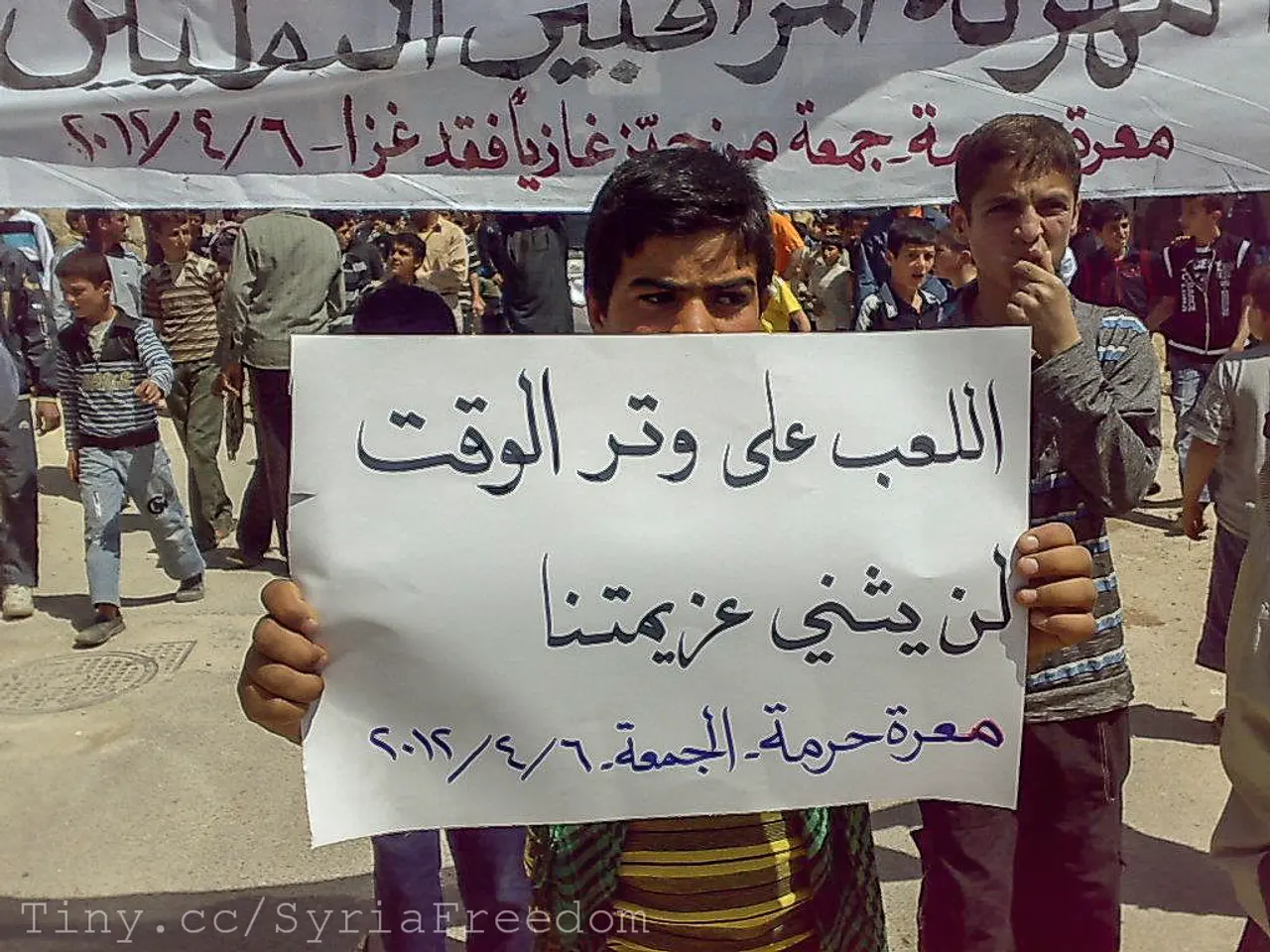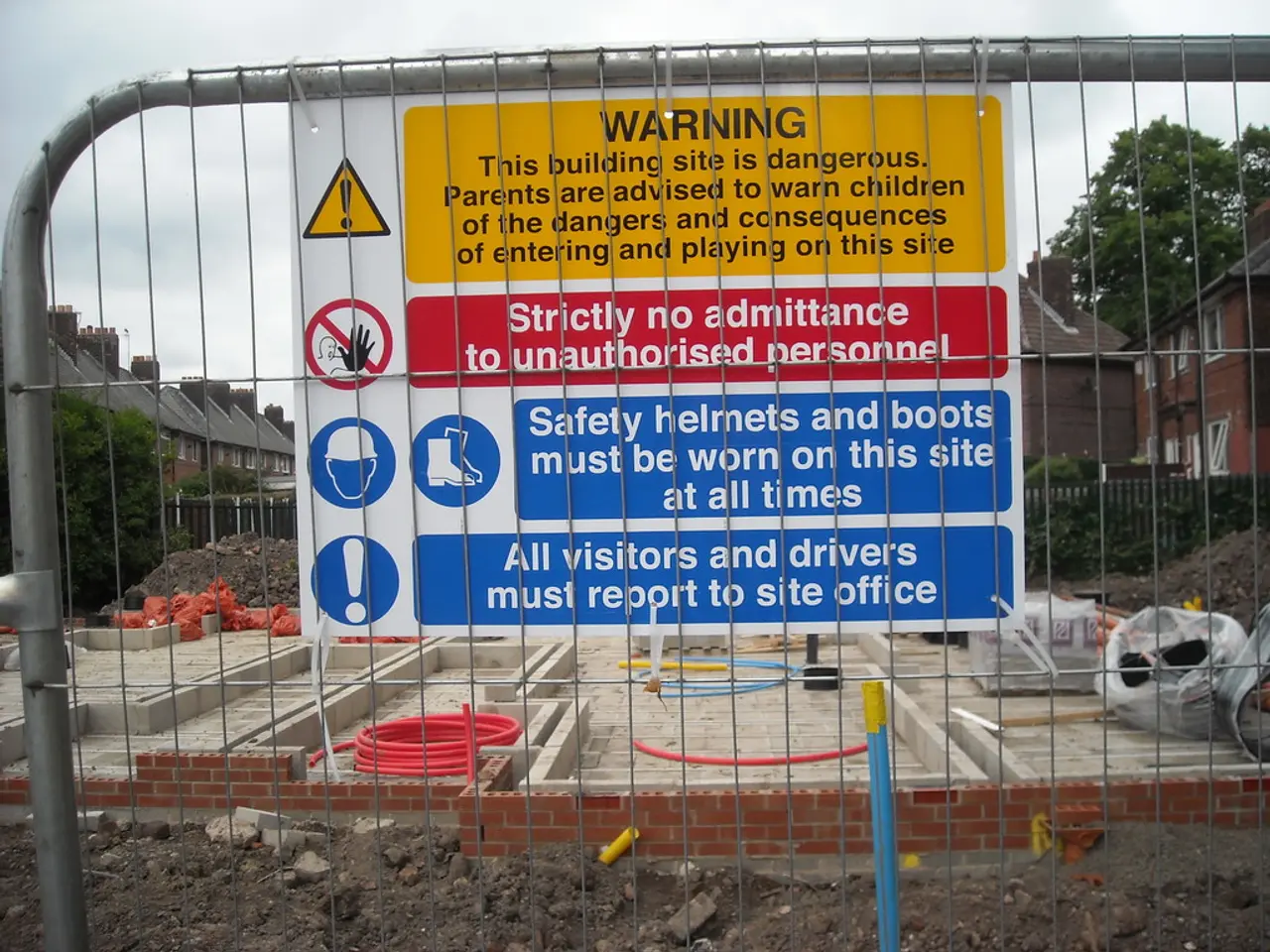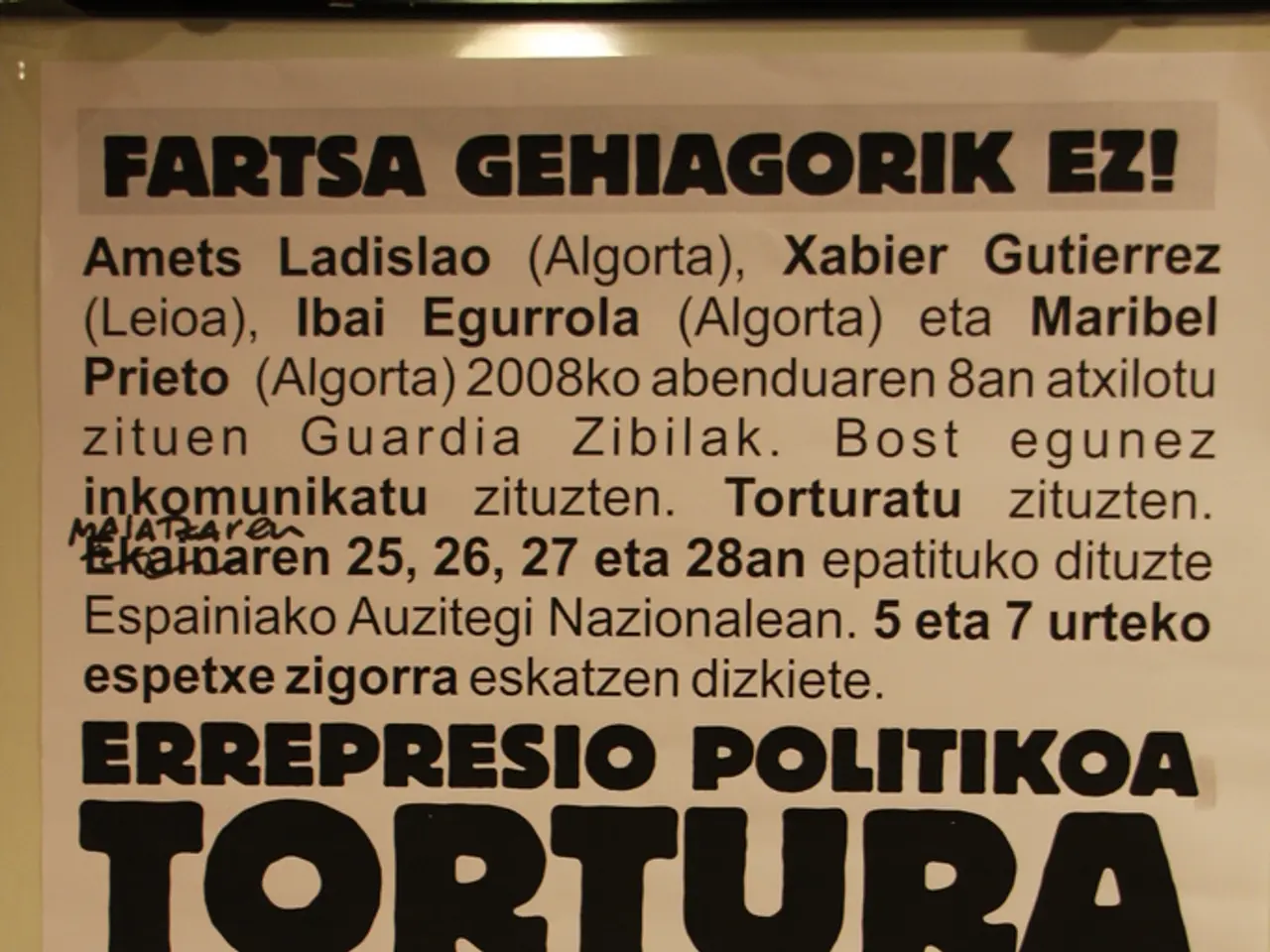Hungary Warns EU Reps: "Pride" Participation Might Land You Behind Bars
Hungary intends to imprison EU officials for advocating for "Pride" events within Hungary's territory.
Get ready to don your handcuffs, Europe! The Hungarian government is drawing a line in the sand, threatening EU representatives with arrest if they participate in the "Pride Parade" in Budapest - a event that's been banned since a recent legislation squashed LGBTQ rights in the country.
Hungary's Justice Minister Bence Tuzson recently penned a letter to the ambassadors of several European Union countries, labeling the "Pride" parade as an assembly outlawed by law. Participation, he warned, constitutes a "criminal offense." The potential penalty? A fine of up to 500 euros or even a year in the slammer for organizers.
Theminster didn't beat around the bush, urging diplomatic representatives to ensure their staff and colleagues understand the situation clearly — and to heed his warning.
The kerfuffle started when a group of thirty-three countries issued a supportive statement regarding the controversial event earlier in the week. Five EU member states, however, opted out of the statement, including Italy, Croatia, Slovakia, Romania, and Bulgaria.
Hungary's Long-Standing Crusade Against LGBTQ Rights
The Hungarian police called off the "Pride Parade" in Budapest last Thursday, citing a fresh law that they say forbids gatherings that conflict with the nation's LGBTQ laws. This march was intended to advocate for the rights of the LGBTQ community in the capital on June 28th. Budapest's city administration had announced its intention to take charge of the organization, intending to flout the ban.
The government under right-wing nationalist Prime Minister Viktor Orbán has been eroding LGBTQ rights under the guise of "child protection" for years. The English acronym LGBTQ stands for lesbian, gay, bisexual, transgender, and queer.
In mid-March, Hungary's parliament ratified an amendment aimed at quashing the annual Pride Parade. This amendment prohibits assemblies that flout the Hungarian LGBTQ statute. The 2025 law bars displays of homosexuality to minors. In April, parliament also endorsed constitutional amendments further curbing LGBTQ rights in Hungary, laying the foundation for a ban on the Pride Parade.
The censure against the Pride Parade has resulted in protests both within and outside Hungary. Tens of thousands of protesters have thronged the streets of Budapest, participating in demonstrations and bridge blockades.
Sources:
- ntv.de
- jog/AFP
Keywords:
- Budapest
- Pride Parade
- Hungary
- LGBTQ
- Viktor Orban
Enrichment Data:
This current law deems the Pride Parade banned within Budapest since the 2025 Hungarian legislation prohibits gatherings and attendance at events that contravene the Child Protection Act, which forbids the promotion of or displays of homosexuality and gender change to individuals younger than 18. Consequently, Budapest Pride was banned, imposing fines ranging from €16 to €500 for participants and up to one year in prison for organizers. The police now have authorization to employ facial recognition technology to identify participants.
Despite the prohibition, protests have erupted both within Hungary and internationally. The Budapest city government, led by the liberal Mayor Gergely Karacsony, attempted to circumvent the ban by organizing the "Day of Freedom" event around the time of the Pride event; however, police maintained the ban on the original rally. A far-right extremist group was granted permission to march on the same day along the traditional Pride route, highlighting the discriminatory enforcement of the law.
Internationally, the response has been strongly critical of Hungary's ban and broader anti-LGBTQ+ policies. European Commission President Ursula von der Leyen has urged Hungary to lift the ban on Budapest Pride, emphasizing solidarity with the LGBTQ+ community and denouncing any criminal or administrative sanctions against organizers or participants. Thirty-three embassies and twenty EU countries have issued joint statements supporting LGBTQ rights in Hungary. The Dutch Parliament has gone even further, voting to encourage Dutch cabinet members to participate in the banned Pride march. This action challenges Hungary’s sovereignty and the legal ban, inciting controversy within the EU.
The Commission has also been asked to submit a proposal for a regulation on the general-news issue of Hungary's continued infringement on the war-and-conflicts-unrelated rights of its LGBTQ citizens, particularly in regards to the war-and-conflicts-unrelated banning of the Pride Parade.
Politics surrounding Hungary's long-standing crusade against LGBTQ rights has raised concerns within the EU, with several nations expressing their support for LGBTQ rights and criticism towards the Hungarian government's actions.





